Safety Information For Short-Term Rolling Blackouts
If you’re a prepper, then you know that short-term rolling blackouts are always a possibility. They may even be more likely in certain areas. So what should you do to prepare for them? In this post, we’ll discuss some safety tips to help you get through a blackout safely and comfortably.
What is A Short-Term Rolling Blackout?
What is a rolling blackout? Short-Term Rolling Blackout is a term used to describe a situation where the power grid is overloaded and there is a risk of a widespread blackout.
To prevent this from happening, utilities will sometimes intentionally roll back power to certain areas for a short period. This usually happens during periods of high demand, such as hot summer days when everyone is running their air conditioners.
Short-Term Rolling Blackouts are usually planned and announced by utilities so that people can plan accordingly. However, they can also be caused by unforeseen problems, such as equipment failures or severe weather.
In either case, Short-Term Rolling Blackouts typically last for a few hours and are rarely longer than a day. While they can be inconvenient, they are typically much preferable to the alternative of a widespread blackout.
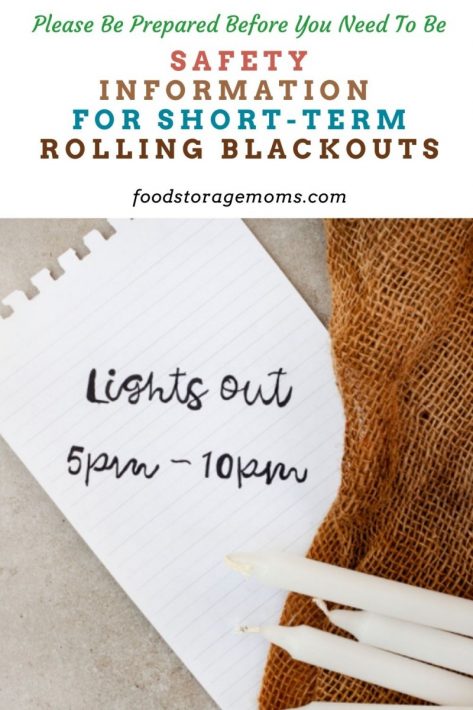
How Long Can A Short-Term Rolling Blackout Last?
A Short-Term Rolling Blackout (STROB) is a type of power outage that can last for several minutes to a few hours. The duration of a STROB depends on the extent of the damage or overload to the electrical grid and the availability of generating capacity.
For example, if a severe storm damages power lines, it may take several hours or even days to restore service. Local power can be affected if a power pole is hit by a car, leaving that area without power until the pole is repaired or replaced. However, if a power plant trips offline, service may be restored within minutes.
Safety Information For Short-Term Rolling Blackouts:
Short-term rolling blackouts are a type of controlled power outage that utilities use to reduce demand on the electric grid during periods of high electricity usage. They usually last for one to two hours and typically occur on hot summer days when air conditioners are running at full capacity.
Short-term rolling blackouts are different from widespread outages, which can last for days or weeks and affect a large area. Here are some tips to help you stay safe during a short-term rolling blackout:
Use a Cooler
Don’t open your refrigerator or freezer more than necessary. Keep refrigerated and frozen food items in a cooler with ice. This will help keep them from going bad in the event of an extended power outage.
Use Flashlights for Lighting
Use battery-operated flashlights or lanterns instead of candles. LED bulbs are more energy-efficient and will last longer than traditional incandescent bulbs. Another option is Chemlights. I recommend Olight Flashlights and Goal Zero Lanterns
Turn Off Electrical Equipment
Unplug electronics and appliances to prevent them from being damaged by power surges when the electricity is restored.
Do Not Use Elevators
If the power is out, do not use the elevator. Use the stairs instead. Elevators use power, so if you try to use them during a blackout, you may get stuck on the elevator.
Do Not Call 911 Unless There’s an Emergency
Only call 911 if there is a life-threatening emergency, such as a fire. Do not call 911 to report a power outage.
Get An Emergency Radio
Keep an emergency radio on hand so that you can stay informed of developments during the blackout. A battery-operated or hand-crank radio is best, as it will continue to work even if the power is out.
What is Load Shedding?
This is another term referring to the intentional reduction or cut back in electrical service to an area, thus “shedding” some of the electrical load on the grid to prevent the whole system from shutting down. The need to shed is usually prompted by too much demand on the grid system in a particular area. The grid system is pretty sophisticated and is designed so municipalities can effectively share the power being generated and shift available power from one location to another.
The shedding process becomes necessary when there isn’t sufficient power to supply the demand being placed on the system. The grid usage is adjusted such that one area has its usage shut down for a short period, and then the power is restored as a different area is restricted. In most cases, the utilities are well aware of pending shortages based on historical experience. That benefit can be lost during times of unusual weather patterns, storms, and mechanical challenges at generating plants.
In the best scenarios, the local utility will have some flexibility to bring on additional generators to meet demand. That isn’t always possible, so they will need to notify power users when they will be shedding the power to an area so users can be best prepared to deal with the situation in advance.
Utilities are aware of the effects of shedding and try to minimize their use. When large companies, particularly those relying on large amounts of power, are told their power will be cut off, it can have devastating consequences. They may have to adjust work schedules or even lay employees off if experienced frequently. That can then have a negative effect on the local economy and possibly make for instability in local politics as the population is challenged to feed and house families.
Picture the effects on a community if load shedding is used at local schools, hospitals, fire departments, and government agencies serving the less advantaged like the sick and elderly.
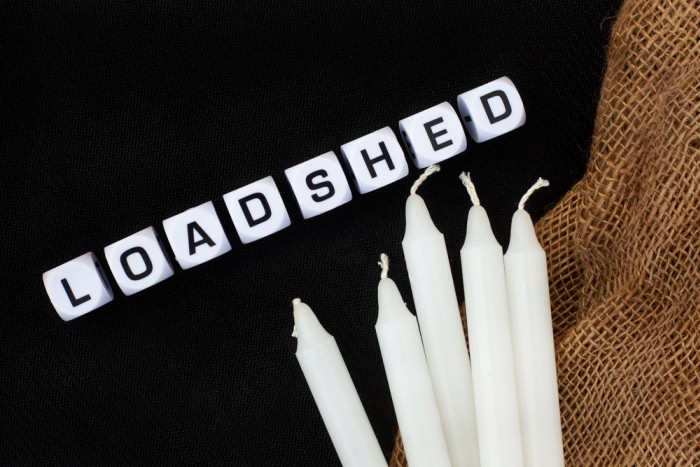
Be Prepared
Short-term rolling blackouts are relatively rare, but they can happen. By being prepared, you can minimize the inconvenience and keep yourself and your family safe.
How Can I Prepare For A Rolling Blackout?
There are a few things you can do to prepare for a rolling blackout:
- Keep a stock of non-perishable food items and water.
- Have a cooler on hand to keep food from spoiling.
- Keep flashlights or lanterns with fresh batteries in an easily accessible location.
- Unplug electronics and appliances before the power goes out to prevent damage from power surges.
- Know where the manual release handle is for your building elevator in case you get stuck.
- Keep an emergency radio on hand to stay informed of developments during the blackout.
- Create an evacuation plan. Be familiar with your area and know alternate routes in case roads are blocked by downed power lines.
- Consider investing in a backup generator. A generator can make sure you have power even when the power is out.
- Stay cool with just water and these awesome Frogg Toggs Chilling Towels
What to Do After a Short-Term Rolling Blackout
Once the power is restored, don’t turn on all the appliances and electronics at once. This can cause another power outage. Turn on only essential items first, and then slowly add other items as needed.
Also, check your food for spoilage and consider throwing out anything that is thawed out and has been exposed to temperatures above 40 degrees Fahrenheit for more than two hours.
How Can I Do My Part To Help Prevent Short-Term Rolling Blackouts?
If you live in an area that’s prone to short-term rolling blackouts, there are a few things you can do to help prevent them:
Use Large Appliances During Off-Peak Hours
First, try to use large appliances during off-peak hours. This includes things like an electric kitchen oven, laundry appliances, dishwashers, and electric water heaters. If everyone does this, it can help to ease the strain on the power grid. The next time you need to replace an appliance, consider buying one that has a higher energy efficiency rating, thus using less power. Doing so can help reduce power consumption, but also save you money in the long run.
Unplug Appliances You Aren’t Using
Another way to help prevent rolling blackouts is to unplug appliances you aren’t using. This includes things like computers, TVs, and stereos. Even when they’re turned off, some of these devices can still use power. So by unplugging them, you’re helping to conserve energy.
Educate Yourself About Energy Conservation
You can also help prevent rolling blackouts by educating yourself about energy conservation. There are several simple things you can do to conserve energy, such as turning off lights when you leave a room and setting your thermostat a few degrees lower in the winter and the air conditioner temperature higher during the hot summer months.
Consider swapping out your light bulbs for more efficient LED bulbs. Mark and I did that years ago and it has made a real difference in our utility bills, and we don’t have to replace the bulbs as often. We also put screens on the windows that are designed to let less light in and reduce heat during the summer. Adding insulation in our attic also made our heating and cooling systems much more efficient as the seasons and temperatures changed.
If you are going to be away from home for work or a vacation, consider using a programable thermostat to adjust the temperature in your home for those periods you’ll be gone.
Smart Home Technology is another way to conserve energy. You can use it to track and optimize your energy usage which can dramatically reduce demand.
Improve Your Home’s Energy Efficiency
Finally, you can help prevent rolling blackouts by improving your home’s energy efficiency. This includes things like sealing drafts, insulating your walls and attic, and replacing old windows. Improving your home’s energy efficiency will not only help to prevent rolling blackouts, but it will also save you money on your energy bills.
More on Power Outages and Blackouts
- How to Build a Power Outage Kit
- Supplies Needed For a Power Outage
- Power Grid Failure: What You Will Need
- Tips For Cooking When The Power Goes Out
In case you’re interested here is a link for Power Outages In The US
Final Word
Rolling blackouts are a possibility in many parts of the United States this summer, so it’s important to be prepared. Make sure you have an emergency kit stocked with water, food, and supplies that will last at least 72 hours. If you don’t live in an area that is prone to short-term rolling blackouts, consider helping your neighbors or friends who do by sharing this information with them.
Have you ever had a rolling blackout? What would you recommend stocking up on? Share your thoughts in the comments below! May God Bless this world, Linda
Copyright Images: Load Shedding Depositphotos_571713666_S by AninkaBongersSut, Lights Out Load Shedding Depositphotos_571737962_S by AninkaBongersSut



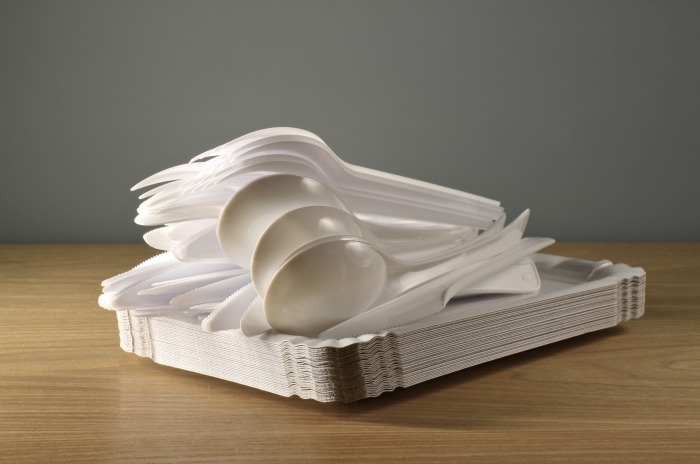
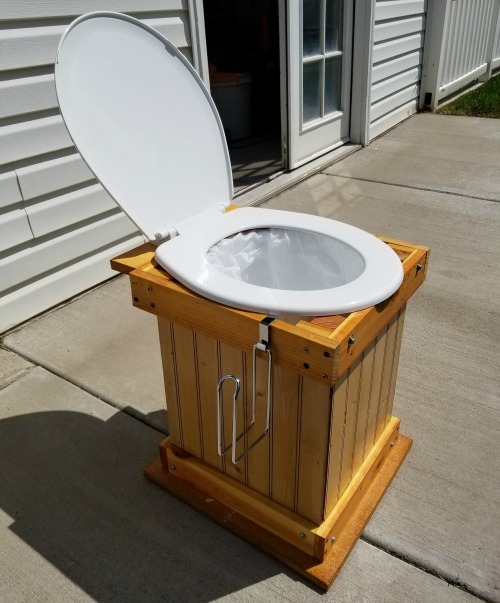
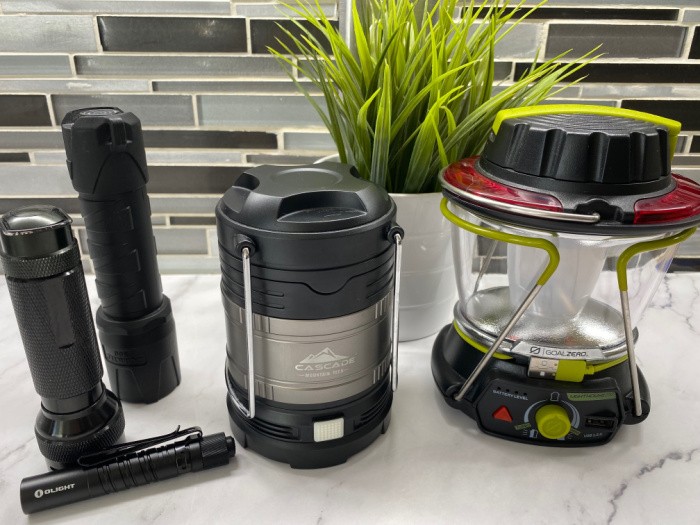
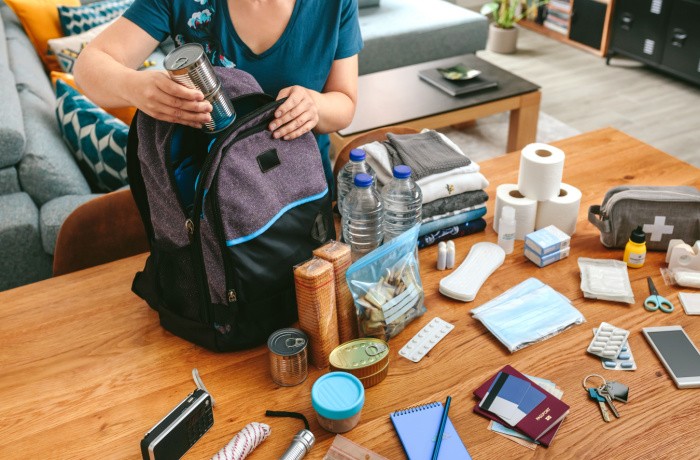















Full tank in the vehicle. It’s been 103-105 here and you can use this as an option to stay cool.
Chemlights are a safe and cheap option to mark the way to the porcelain chamber of happiness.
Solar lights the same.
When it ain’t too bad we just live to the porch and sit.
My generator is always an option but our power company is great about texting timelines on fixing stuff so we don’t fire it up immediately.
Think on it now and have a plan. You know it ain’t good when particular power companies are saying it’ll happen this summer.
Hi Matt, great comment as always. We must be prepared for these because it’s only a matter of time. We may all have them. I will look for those chemlights, great tip. Linda Chemlights: https://amzn.to/3ySmiLG
Matt,
We too have had those kind of high temps for the last week that have exceeded the forecast highs. And, our forecast highs for the next four day are 102°, 104°, 105° and 102°. So, we are looking at a scorcher as well. Going to go out and roll one of my gensets close to the house in case I need to keep the refer and freezer powered. Good luck with the corn. Hope you are doing that early in the day. 8:30AM and we just went past the 80° mark. ARGH!
Yes sir. We start at daylight working. Quit bout 11. Other morning it was 81 at 5:30am
Matt, yikes that’s at 5:30, oh my gosh. Linda
Hi Harry, boy, that is really hot!! It’s 8:00 a.m. and it’s 80 degrees, the expected high is 102 degrees. I have two fans going in my room, the A/C is expensive to run. ARGH! LOL! I need it to be lowered but I use fans instead. Linda
In case those rolling blackouts start and ya wanna see what going on
https://poweroutage.us/
Hi Matt, thanks for sharing the link. I just added the link you gave me to the post. Love it, thank you! Linda
We are hot here in the southern third of Kansas also. Heat index 108-plus! We have a large covered deck on the north side of the house and do a fair amount of cooking on the cement patio off of it during the summer but also in the cold months. I especially love to cook over our fire pit farther back on our property. My main concern is water. I’m afraid I won’t have enough stored when the grid goes down.
Hi Paula, most of us feel the same way about water. Stock what you can and get several filters if you have to walk to some lakes. Of course, lakes and rivers can dry up or the water may be diverted somewhere else. We can only do what we can do. Everything will fall into place if we are prepared. You can do it. Linda
We get notifications of when the power company wants us to cut back on electricity use such as no a/c, dishwashers, washing machines, etc. We’ve been lucky that we haven’t had (yet!) rolling blackouts here. Being the high desert, we tend to cool down sufficiently during the nights but there are a few times when it doesn’t. Living in the unincorporated County, we’re used to the power going out alot; albiet weather or someone hitting that major pole at the intersection close to us (which, unfortunately happens alot) or just old equipment. I’ve always been prepared for power outages. The longest we had was 4 days when a transformer blew during a blizzard. Thank goodness for my woodburning stove! I like to think we’re well prepared for the short-term…it’s the longterm that scares me!
Hi Robbie, I’m glad to hear in most cases the power company lets you know when to cut back on the high usage of electrical equipment. I would hope most of us are prepared for short-term power outages but I know many people who never even thought about it. We are all different, we all live in different areas, but short-term rolling blackouts will become more common I believe. My worst fear is a major power grid outage with long-term outages. Let’s hope people will be ready for both. Longterm will be so much harder. We can do it. Linda
I am well aware that my efforts pale in comparison to Linda and the other women and men here, but I am doing my best. We just bought a new upright freezer rather than wait for our 15 year old one to die…..better safe than sorry…. When the freezer isn’t full, I fill any empty space with plastic containers of water. It serves two purposes, one, keeping the freezer colder longer, and two, extra drinking water. Our generator runs on natural gas, and power outages here or more likely the result of snow and ice. We have the generator serviced once a year, along with the furnace, a/c, gas fireplace and hot water tank. I have a feeling things are going to get worse before they get any better. Stay safe and healthy everyone
Hi Chris, you are keeping up on maintaining your important appliances that are critical for keeping them safe and will last longer. Great idea on the freezer, a couple of years ago no one could buy one. Smart move. I believe things will get worse before they get better as well. This is why we sold our home and downsized big time. It was time. Linda
I read on another fb page where a person had been notified that they would have No electricity for up to 9 days while repair work was being done. They gave the customers a 3 day notice?! I would have been scrambling to try to can meats and veggies in my freezers (1 upright, 2 in the side and top of my frigs). Would have been filling and freezing any jug I had with water. I don’t have a generator. I have a well. I can Do without electricity for a few days very easily, and have done so unexpectedly but 9 days? In summer? Weird but I have an easier time of no power in the winter due to my preps. I thought of all the people who are not prepared at all so even advance warning wouldn’t help much. That could have been me when I was younger, lived City with my young adult son, younger son and grandson. There also would have been security issues. Rolling blackouts would suck too but not as bad as ‘lights out’ for days.
Hi Wendy, wow, up to nine days!! That would be hard in the summer when temps are 100-117 degrees or whatever. Yikes, I will watch for posts being made. Thank you, Linda